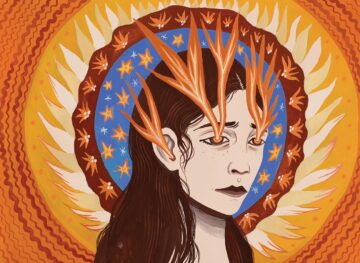Fred Schwaller in Nature:
 Andrea West remembers the first time she heard about a new class of migraine medication that could end her decades of pain. It was 2021 and she heard a scientist on the radio discussing the promise of gepants, a class of drug that for the first time seemed to prevent migraine attacks. West followed news about these drugs closely, and when she heard last year that atogepant was approved for use in the United Kingdom, she went straight to her physician.
Andrea West remembers the first time she heard about a new class of migraine medication that could end her decades of pain. It was 2021 and she heard a scientist on the radio discussing the promise of gepants, a class of drug that for the first time seemed to prevent migraine attacks. West followed news about these drugs closely, and when she heard last year that atogepant was approved for use in the United Kingdom, she went straight to her physician.
West had endured migraines for 70 years. Since she started taking the drug, she hasn’t had one. “It’s marvellous stuff. It’s genuinely changed my life,” she says.
For ages, the perception of migraine has been one of suffering with little to no relief. In ancient Egypt, physicians strapped clay crocodiles to people’s heads and prayed for the best. And as late as the seventeenth century, surgeons bored holes into people’s skulls — some have suggested — to let the migraine out. The twentieth century brought much more effective treatments, but they did not work for a significant fraction of the roughly one billion people who experience migraine worldwide.
More here.
Enjoying the content on 3QD? Help keep us going by donating now.
